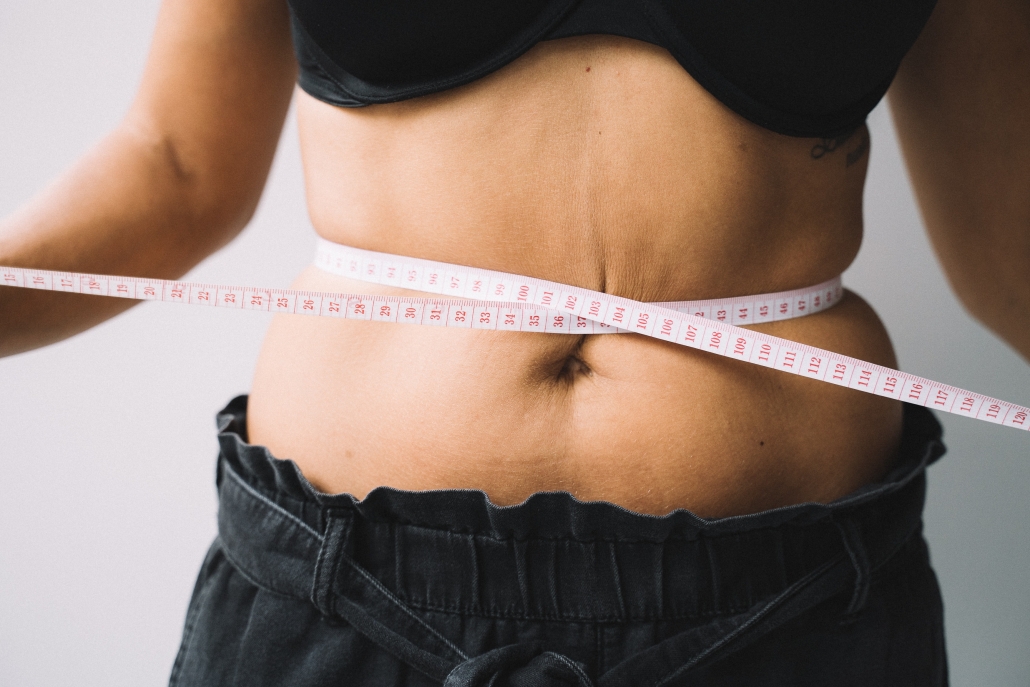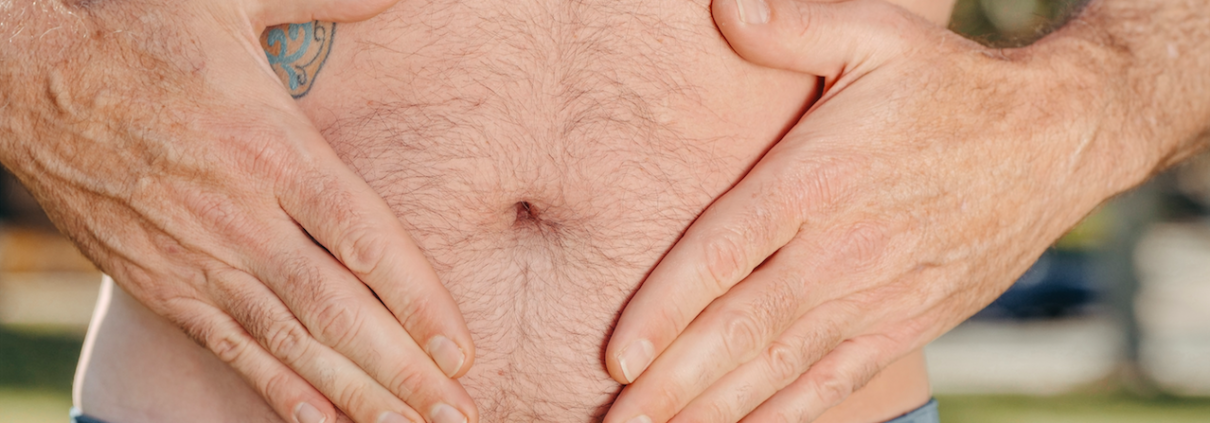How To Ease Bloating?
Bloating is not the same as abdominal fat accumulation. Even if you have less than 10% body fat, you may still feel bloated. Some people struggle to avoid bloating despite eating healthfully, exercising daily, and avoiding fast food. Bloating happens when the gasses that are generated as a result of inadequate digestion fill up your stomach and give it an out-of-the-ordinary appearance. Most of the time, you’re not even at blame. Even when you cut back on your meal quantities, certain underlying variables might still cause bloating.

What’s Ayurveda’s take on bloating?
Bloating is attributed to a weak Agni, also known as the figurative fire that is in charge of digestion and absorption of the meal, according to Ayurveda. Food that ferments results in the creation of gas, which builds up in the lower belly and produces bloating because Agni is compromised.
What Causes Bloating?
Bloating can be caused by a variety of things. It might be rather simple to get rid of bloating if you are careful with your diet and exercise regularly. However, you could suffer a little if your way of living prevents you from exercising outside. But after you deal with the causes of bloating and adhere to the advice that will be covered later in this article, you will undoubtedly see benefits. So let’s examine the typical reasons for bloating.
Eating Habits
Both short-term and long-term health effects can result from poor eating habits. Your diet accounts for 80% of your health, while daily activity accounts for 20%. And you now know that you need to look elsewhere – at your nutrition – if you still can’t control your bloating despite working out for hours at the gym.
The main causes of bloating include consuming junk food or eating too much. You can create disaster if you combine it with aerated drinks. People eat in a hurry since life is busy and they want to save some of their valuable time. However, since you frequently eat without chewing and inhale air with each mouthful, doing so frequently results in bloating. If you are lactose intolerant, eating dairy products may make you feel bloated and may give you a continuously unsettled stomach.
Addictions
Smoking harms your health—sounds cliche, right? Consider this: Smoking makes you bloat. That may be terrifying. Some people develop drug addictions. They need them to survive. Examples include anti-allergic medications, pain relievers, and any other drugs that a doctor has recommended. The pro-digestion activity in the gut is often slowed down by the majority of these medications, which are calcium channel blockers. As a result, the leftover gasses that are so produced become stuck in the intestine or lower belly and result in bloating.
Chronic or Temporary Medical Conditions
Bloating can occur sometimes in people with gastrointestinal illnesses or irritable bowel syndrome. Long-lasting stomach discomfort, erratic bowel movements, and unpleasant cramping are possible complications of the illness. One of the main causes of bloating is also lactose intolerance. In addition to physiological considerations, ongoing stress and worry can also contribute to bloating.
Tips to Help With Bloating

Bloating does not go away on its own, therefore you must make some deliberate decisions about your eating patterns and make some little lifestyle adjustments. The following advice can help you slim down and become in shape.
#1 Avoid Cold, Raw, and Stale Foods
Foods that are stale, cold, or raw are challenging to digest. Bloating results from the undigested food becoming poisonous and accumulating gasses in the lower belly. On the other hand, freshly prepared, thoroughly cooked food not only makes you feel fuller inside, but it also breaks down quickly, lowering your chance of experiencing indigestion and bloating.
#2 Use Spices in Your Cooking
Traditional Indian spices improve the flavor of the dish and facilitate digestion. These spices, which include cumin seeds, grated ginger and garlic, asafetida (hing), and fennel seeds, aid in promoting the activity of digestive enzymes, ensuring that the meal is effectively digested and absorbed, and removing free radicals. You may add these spices to hot drinks in addition to using them in cooking.
A word of caution: Not everyone like spices. Use spices sparingly if you have sensitive taste buds or are prone to acid reflux or heartburn. Before adding spices to their meals or beverages, those with underlying medical conditions should speak with a doctor.
#3 Chew Your Food Properly
Correct meal chewing is the simplest technique to avoid bloating and digestive issues. Typically, you should chew food 32 times before swallowing it. This will prevent your digestive system from having to work too hard by predigesting your meal before it enters the stomach.
Do you know what else occurs when you properly chew your food? You consume less food than you typically would. This is why: Your brain needs 15 to 20 minutes to register that your stomach is full. If you eat quickly and finish your meal in 5–10 minutes, you might not know that your stomach is full and that the subsequent 10 minutes of food will go into a “extra pocket.” When you chew your food thoroughly, you consume your regular meal portion more slowly and stop when your brain signals you to. You may avoid overeating and, as a result, avoid gas and bloating by lengthening your mealtime.
#4 Fennel Seeds After Meals
There is a purpose for why fennel seeds and rock sugar are typically provided after meals in Indian eateries. Bloating and other digestive problems can be avoided by chewing on fennel seeds, which aid in the release of digestive enzymes. To prevent indigestion, especially after overeating, take 1 tsp of fennel seeds with 1 tsp of rock sugar. Having a little packet of fennel seeds on hand when traveling might be beneficial because it may also reduce acid reflux and discomfort.
#5 Spread Your Daily Intake
To lessen bloating, you don’t have to starve yourself. Your health will suffer if you skip meals or drastically reduce your normal calorie intake. The best course of action is to break up your meals into smaller quantities and only eat when you are truly hungry. Maintaining your target energy levels throughout the day by eating smaller meals provides your digestive system more time to process your food.
















Leave a Reply
Want to join the discussion?Feel free to contribute!